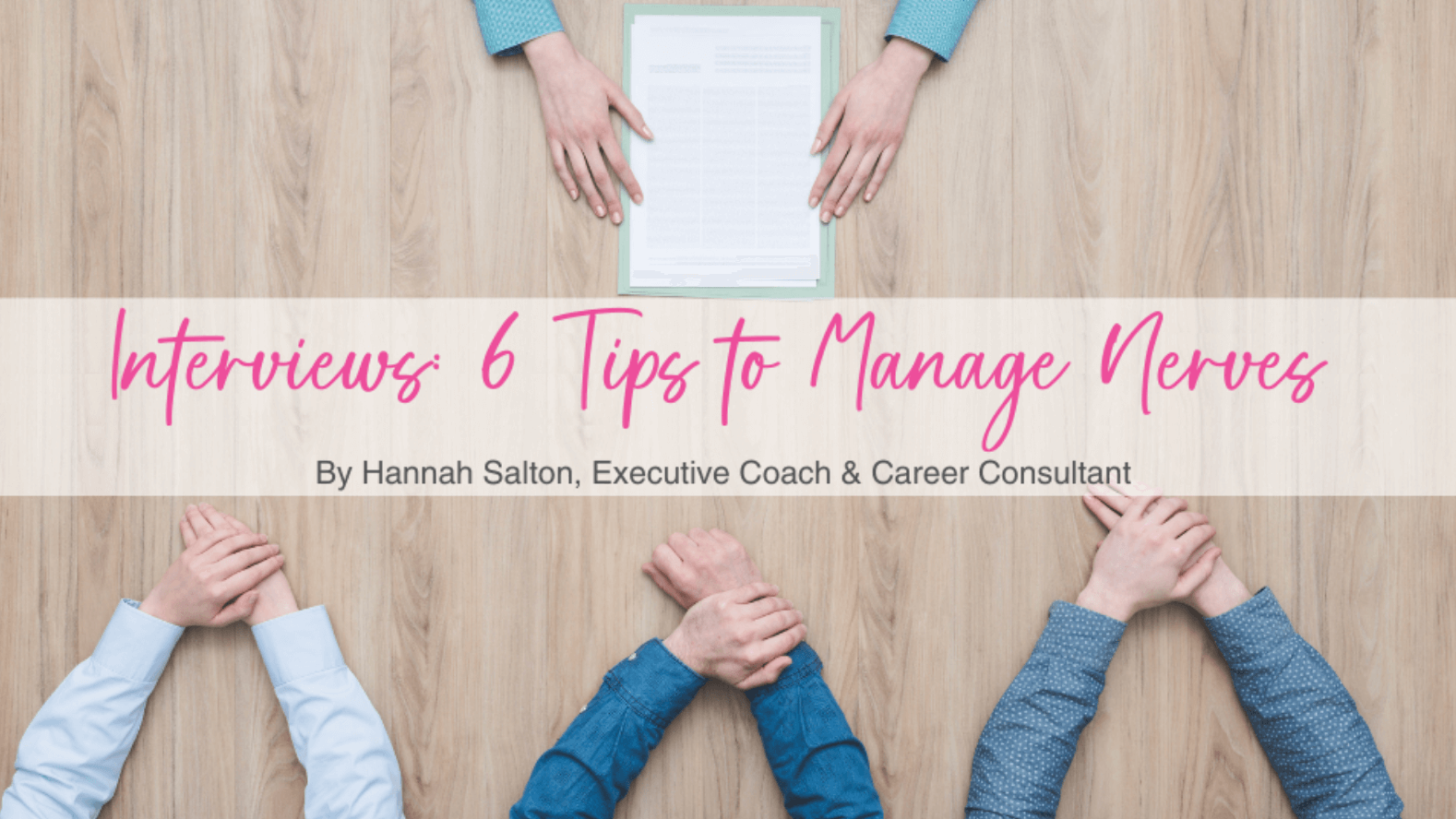Drop off your CV
We serve the global HR community through our offices located in Delhi, Hong Kong, London, New York, São Paulo and Singapore and have placed HR leaders in over 30 countries.
Nerves happen to all of us – sweaty palms and an increased heart rate (among others) are all...

Nerves happen to all of us – sweaty palms and an increased heart rate (among others) are all signs our body feels under threat. This was useful when we were defending our caves from wild animals – but not so useful in an interview!
Here are six tips on how to manage (rather than eliminate) your nerves:
1) Reframe your nerves as excitement
We all know that sweating, an increased heart rate and shaky hands are common physical manifestations of feeling anxious. We sometimes forget that these bodily functions are also what we experience when we feel excited. When you’re in a situation that triggers your nerves, there’s no point pretending you feel relaxed. Your body knows that something is going on!
Rather than fighting your nerves, or beating yourself up, try labelling them in a different way, as signs of your excitement and anticipation. “I’m excited for the opportunity to showcase my strengths” or “I am excited about the prospect of being offered this job”. Acknowledging and reframing your emotions can help you move past them and focus on the task at hand.
2) Stay present and focused
Practise mindfulness by drawing your attention to the present moment. Take slow, deep breaths, make eye contact with the interviewer (even if they are on a screen), and pay attention to the external environment around you.
Notice when you get overly caught up in internal negative stories (“I’m terrible at interviews, I answered the last question really poorly”), and refocus your attention on your breath and the present moment. Practice active listening by paying close attention to the specific wording of the interview questions, to ensure you are answering the exact question being asked.
3) Remember interviewers are human too
The people interviewing you have more than likely been rejected from jobs in the past, as the majority of people have at some point. They may be in ‘professional mode’ but they are human with fears, hopes, likes and dislikes. Remind yourself of their human qualities, and don’t put them on a pedestal.
Regardless of the outcome, you will do other interviews in your lifetime, whether next week, or in five years’ time. See every interview as an opportunity to practice your interview skills, allowing you to be even better for the next one.
4) Take care of the practical stuff
It might sound obvious, but being clear in advance about the logistics side of things can ensure you don’t get any unnecessary surprises. Be clear on where you need to be and when, and who your interview is with – if you are told this in advance.
Bring water to stay hydrated and moisten a dry mouth. Taking a sip can also provide extra thinking time when you are asked a tricky question! If your interview is virtual, ensure a good internet connection and laptop battery, and do what you can to avoid disruption from the rest of your household.
5) See the interview as a mutual conversation
The employer wants to hire good people just as much as you want a good job. Reflect on what you’d like to get from the interview. What questions might you have for the interviewer? What are you curious about? It’s a useful opportunity to learn more about the employer to enable you to assess how much you’d like to work there. If you receive multiple job offers, you will need to decide which employer suits you best.
6) Get some perspective
Keep your situation in perspective. While this interview may feel like the most important thing in the world to you, it’s not going to feel so important five, ten or twenty years down the line. Remember that there are so many factors out of your control, and focus on doing the best job you can.
Hannah is a qualified executive coach, career consultant and former corporate recruiter. She spent the first eight years of her career recruiting talent for top international corporations, including telecoms giant BT and elite law firm Allen & Overy.
To find out more about Hannah’s career coaching programmes you can visit her website, and for more job search tips you can connect with her on LinkedIn.
Her first book ‘Graduate Careers Uncovered: Tools and insights from a former recruiter to demystify your job search’ is available to buy now on Amazon.